Renault Clio vs Porsche Cayenne – Differences & prices compared
Compare performance, boot space, consumption and price in one view.
Find out now: which car is the better choice for you – Renault Clio or Porsche Cayenne?
The Renault Clio (Hatchback) comes with a Full Hybrid or Petrol engine and Automatic or Manuel transmission. In comparison, the Porsche Cayenne (SUV) features a Petrol or Plugin Hybrid engine with Automatic transmission.
When it comes to boot capacity, the Renault Clio offers 391 L, while the Porsche Cayenne provides 772 L – depending on how much space you need. If you’re looking for more power, decide whether the 143 HP of the Renault Clio or the 739 HP of the Porsche Cayenne suits your needs better.
In terms of consumption, the values are 4.30 L per 100 km for the Renault Clio, and 4 L for the Porsche Cayenne.
Price-wise, the Renault Clio starts at 16600 £, while the Porsche Cayenne is available from 87000 £. Compare all the details and find out which model fits your lifestyle best!
In a surprising comparison, the Renault Clio and Porsche Cayenne showcase the stark contrast between practicality and luxury in the automotive world. While the Clio excels in urban agility and fuel efficiency, appealing to budget-conscious drivers, the Cayenne boasts high-performance capabilities and a lavish interior, catering to those who demand power and prestige. Ultimately, this matchup highlights how diverse the car market is, with each model carving out its own niche.
Renault Clio
The Renault Clio continues to impress with its sleek design and agile handling, making it a standout choice in the compact car segment. Inside, it offers a surprisingly spacious and comfortable cabin, crafted with high-quality materials that enhance the driving experience. Its fuel efficiency and reliable performance make it an attractive option for both city commuting and longer journeys.
details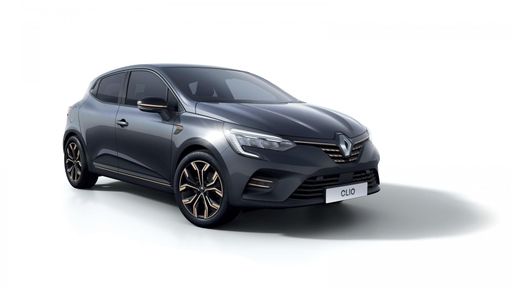 @ renault-presse.de
@ renault-presse.de
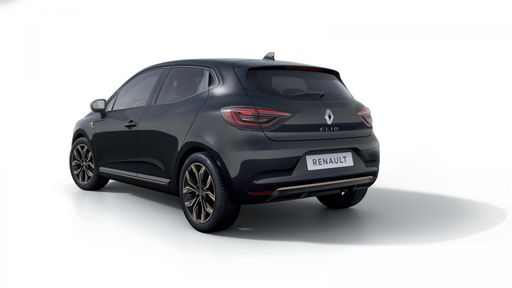 @ renault-presse.de
@ renault-presse.de
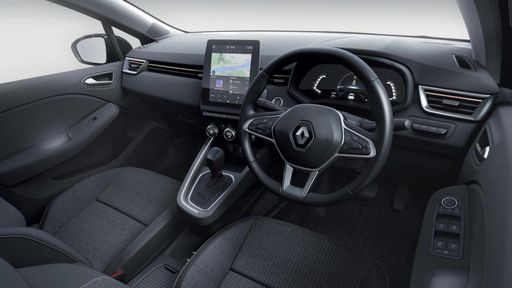 @ renault-presse.de
@ renault-presse.de
Porsche Cayenne
Der Porsche Cayenne präsentiert sich als beeindruckender Vertreter der Premium-SUVs und verbindet kraftvolles Design mit luxuriösem Komfort. Sein dynamisches Fahrverhalten und die hochwertigen Materialien im Innenraum machen jede Fahrt zu einem besonderen Erlebnis. Zudem bietet der Cayenne modernste Technologiefunktionen, die sowohl Unterhaltung als auch Sicherheit gewährleisten.
details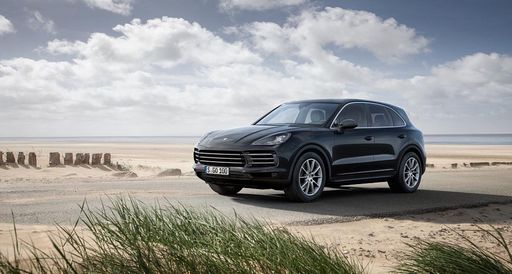 @ Porsche Media Deutschland
@ Porsche Media Deutschland
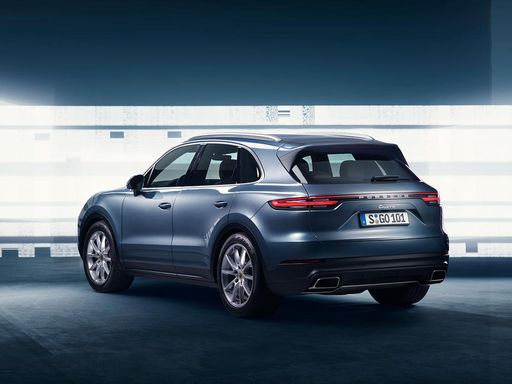 @ Porsche Media Deutschland
@ Porsche Media Deutschland
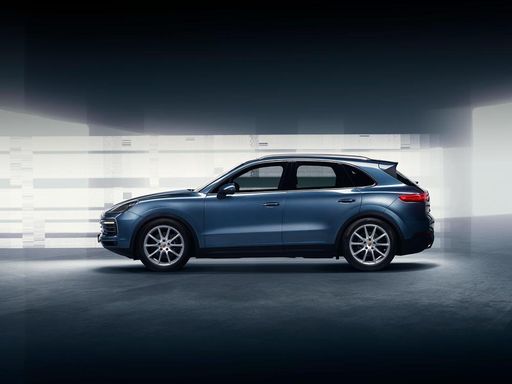 @ Porsche Media Deutschland
@ Porsche Media Deutschland
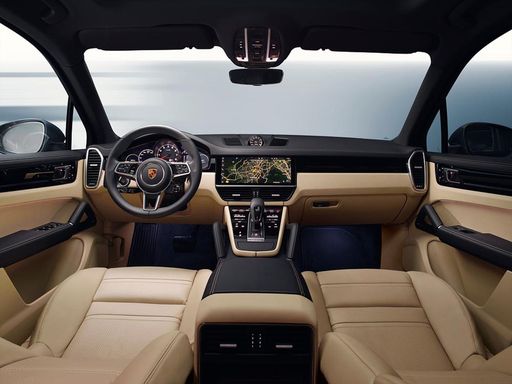 @ Porsche Media Deutschland
@ Porsche Media Deutschland
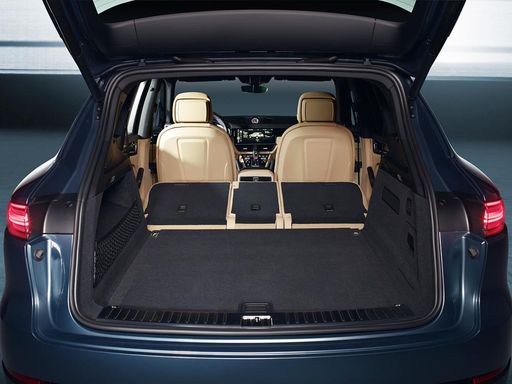 @ Porsche Media Deutschland
@ Porsche Media Deutschland
The automotive market is filled with vehicles of varying shapes and sizes, each catering to different tastes, needs, and lifestyles. In this article, we will delve into the remarkable differences and surprising similarities between two seemingly disparate models: the compact Renault Clio and the luxurious Porsche Cayenne. While one is designed for urban agility and efficiency, the other exudes power and prestige. Let’s explore their technical specifications and innovations to see how they stack up against each other.
Engine and Performance: Under the Hood
The Renault Clio comes equipped with a diverse range of engine types, including full hybrid, petrol, and LPG options. It features a maximum power of 143 HP and torque of up to 205 Nm, delivering a respectable acceleration of 0-100 km/h in 9.3 seconds in its most powerful configurations. This compact hatchback is designed for efficiency, achieving fuel consumption rates as low as 4.3 L/100 km, along with a top speed of 174 km/h.
In contrast, the Porsche Cayenne showcases an entire powerhouse of engineering excellence with engine options delivering between 353 HP and a staggering 739 HP in its turbo variants. With torque metrics soaring to 950 Nm, the Cayenne can accelerate from 0-100 km/h in as little as 3.6 seconds. Its all-wheel-drive system enhances grip, and the fuel efficiency can reach as low as 1.4 L/100 km in its plugin hybrid variant, giving it an electric range of up to 78 km.
Dimensions and Design: Size Matters
When it comes to body dimensions, the Renault Clio measures 4053 mm in length, 1798 mm in width, and stands 1440 mm high. The Clio’s compact form makes it perfect for city driving and tight parking spaces. It features a trunk capacity that ranges from 301 to 391 liters, accommodating the daily needs of city dwellers.
On the other hand, the Porsche Cayenne measures 4930 mm in length and 1983 mm in width, towering at 1696 mm tall. This SUV not only offers a commanding road presence but also boasts significantly larger trunk capacities ranging from 434 to 772 liters, ideal for family vacations or off-road adventures.
Interior Comfort and Technology: A Tale of Two Worlds
Both models cater to the needs of their respective buyers with thoughtfully designed interiors. The Clio offers a comfortable seating arrangement for up to five passengers, incorporating modern technology features like a touchscreen infotainment system and a range of driver-assistive technologies, ensuring an enjoyable and safe driving experience.
The Cayenne, being a luxury SUV, elevates the concept of interior comfort. It combines upscale materials with cutting-edge technology, including a larger infotainment screen, advanced connectivity features, and premium audio systems. With seating configurations for up to five customers, the Cayenne ensures plenty of space and comfort for long travels.
Innovative Features: Leading the Charge
Renault is embracing sustainability with its hybrid technology in the Clio, presenting options that not only reduce emissions but also offer significant savings at the pump. The vehicle features regenerative braking to enhance efficiency further, making it an ideal option for environmentally-conscious drivers.
Porsche, on the other hand, pushes the limits of technology with its Cayenne, offering features such as dynamic chassis control, adaptive cruise control, and a sophisticated all-wheel-drive system. The integration of electric power in the plugin hybrid variants serves to minimize carbon footprints while still delivering exhilarating performance.
Conclusion: Choosing the Right Fit
In the end, the choice between a Renault Clio and a Porsche Cayenne boils down to individual preferences and needs. The Clio is a practical, efficient hatchback perfect for urban environments, while the Cayenne represents the pinnacle of luxury and performance, catering to those who desire power and prestige. Each has something unique to offer, making them standout options in their respective categories.
No matter which model captures your attention, both the Renault Clio and the Porsche Cayenne reflect their brands' values in design, performance, and innovative technology.

|

|
|
|
|
Costs and Consumption |
|
|---|---|
|
Price
16600 - 23000 £
|
Price
87000 - 186400 £
|
|
Consumption L/100km
4.3 - 5.3 L
|
Consumption L/100km
4 - 12.2 L
|
|
Consumption kWh/100km
-
|
Consumption kWh/100km
-
|
|
Electric Range
-
|
Electric Range
74 - 83 km
|
|
Battery Capacity
0.60 kWh
|
Battery Capacity
21.80 kWh
|
|
co2
97 - 121 g/km
|
co2
90 - 277 g/km
|
|
Fuel tank capacity
39 - 42 L
|
Fuel tank capacity
70 - 90 L
|
Dimensions and Body |
|
|---|---|
|
Body Type
Hatchback
|
Body Type
SUV
|
|
Seats
5
|
Seats
4 - 5
|
|
Doors
5
|
Doors
5
|
|
Curb weight
1124 - 1331 kg
|
Curb weight
2130 - 2670 kg
|
|
Trunk capacity
301 - 391 L
|
Trunk capacity
434 - 772 L
|
|
Length
4053 mm
|
Length
4930 mm
|
|
Width
1798 mm
|
Width
1983 - 1989 mm
|
|
Height
1440 mm
|
Height
1652 - 1698 mm
|
|
Payload
398 - 406 kg
|
Payload
365 - 705 kg
|
Engine and Performance |
|
|---|---|
|
Engine Type
Full Hybrid, Petrol
|
Engine Type
Petrol, Plugin Hybrid
|
|
Transmission
Automatic, Manuel
|
Transmission
Automatic
|
|
Transmission Detail
Automatic Gearbox, Manual Gearbox
|
Transmission Detail
Automatic Gearbox
|
|
Drive Type
Front-Wheel Drive
|
Drive Type
All-Wheel Drive
|
|
Power HP
67 - 143 HP
|
Power HP
353 - 739 HP
|
|
Acceleration 0-100km/h
9.3 - 17.1 s
|
Acceleration 0-100km/h
3.6 - 6 s
|
|
Max Speed
160 - 174 km/h
|
Max Speed
248 - 305 km/h
|
|
Torque
95 - 205 Nm
|
Torque
500 - 950 Nm
|
|
Number of Cylinders
3 - 4
|
Number of Cylinders
6 - 8
|
|
Power kW
49 - 105 kW
|
Power kW
260 - 544 kW
|
|
Engine capacity
999 - 1598 cm3
|
Engine capacity
2995 - 3996 cm3
|
General |
|
|---|---|
|
Model Year
2023 - 2025
|
Model Year
2025
|
|
CO2 Efficiency Class
C, D
|
CO2 Efficiency Class
G, B, C
|
|
Brand
Renault
|
Brand
Porsche
|
Renault Clio
Introduction to the Renault Clio
The Renault Clio, a popular choice among compact cars, has continually advanced its design and technology to maintain a strong position in the automotive market. With enhancements in engineering, efficiency, and aesthetic appeal, the Clio remains a top contender in the hatchback category.
Advanced Hybrid Technology
The Renault Clio's hybrid technology is one of its standout features. The E-Tech Hybrid system optimises both performance and efficiency, offering a seamless transition between electric and fuel-powered driving. This setup results in an impressive fuel consumption rate of 4.3 L/100km, making it an attractive option for eco-conscious drivers.
Efficient Engine Options
Renault offers a variety of engine choices for the Clio, accommodating different driving styles and preferences. From the economical SCe 65 manual variant to the powerful TCe 100 LPG gas version, each option is engineered to balance performance with fuel efficiency. With outputs ranging from 67 to 143 PS, drivers can enjoy a tailored driving experience.
Design and Comfort
The Renault Clio stands out with its sleek and modern design, characterized by its hatchback body style. The interior boasts an ergonomic layout with seating for five, ensuring passenger comfort and convenience. With a boot capacity of 301 to 391 litres, the Clio also offers practical storage solutions for everyday use.
Safety and Innovation
Safety is a key priority for Renault, and the Clio reflects this commitment with its suite of innovative safety features. Advanced driver-assistance systems are integrated throughout, enhancing both safety and usability. The Clio encompasses features like lane departure warning, automatic emergency braking, and adaptive cruise control.
Cost Efficiency and Environmental Impact
The Renault Clio not only offers affordability with pricing ranging from €18,450 to €26,800, but also promises low running costs. With CO2 emissions between 97 and 130 g/km, the Clio fits well within the C and D efficiency classes. This makes it a cost-effective and environmentally friendly choice for modern drivers.
Conclusion
Renault Clio remains a dynamic, dependable and economical option in the compact car segment. With its innovative technologies, diverse engine options, and commitment to safety and design, the Clio continues to impress and adapt to the evolving demands of the automotive world.
Porsche Cayenne
Einleitung in die Welt des Porsche Cayenne
Der Porsche Cayenne steht für unübertroffene Sportlichkeit und luxuriösen Komfort in der Welt der SUVs. Seit seiner Einführung hat dieses Modell kontinuierlich technische Innovationen in den Vordergrund gestellt. Die aktuelle Generation des Cayenne beeindruckt mit einer Kombination aus leistungsstarken Motoren, fortschrittlicher Hybridtechnik und erstklassigem Design.
Leistungsstarke Motoroptionen
Ein Herzstück des Porsche Cayenne ist die beeindruckende Vielfalt an Motorisierungen. Kunden können zwischen Varianten mit kraftvollen Benzinmotoren und innovativen Plug-in-Hybridantrieben wählen. Die Leistungsspanne reicht von 353 PS bis zu beeindruckenden 739 PS. Damit bietet der Cayenne sowohl für sportliche Fahrer als auch für Liebhaber von Effizienz das richtige Modell.
Fortschrittliche Hybridtechnologie
Die E-Hybrid-Versionen des Porsche Cayenne sind ein Paradebeispiel für die Verschmelzung von Performance und Effizienz. Mit einer elektrischen Reichweite von bis zu 78 km und einem Verbrauch von nur 1.4 L/100 km sind diese Modelle bestens für umweltbewusste Fahrer geeignet, die nicht auf typische Porsche-Performance verzichten möchten. Die Batteriekapazität von 21,8 kWh erlaubt zudem alltagstaugliche Fahrten im rein elektrischen Modus.
Exklusives Design und luxuriöse Ausstattung
Der Cayenne überzeugt nicht nur technisch, sondern auch optisch. Mit einer Länge von 4930 mm und einer Breite von bis zu 1989 mm strahlt er eine majestätische Präsenz aus. Der Innenraum bietet Platz für 4 bis 5 Personen und besticht durch hochwertige Materialien und modernste Technik. Die Ausstattungslinien Tiptronic S und das optionale GT-Paket bieten eine breite Palette von Individualisierungsmöglichkeiten.
Herausragende Fahrdynamik und Sicherheit
Der Porsche Cayenne ist mit einem fortschrittlichen Allradantriebssystem und einem modernen Automatikgetriebe ausgestattet, das für eine optimierte Leistungsübertragung sorgt. Dadurch gelingt die Beschleunigung von 0 auf 100 km/h in beeindruckenden 3.6 bis 6 Sekunden. Sicherheit wird ebenfalls großgeschrieben, was sich in der CO2-Effizienzklasse von B bis G und einer Höchstgeschwindigkeit von bis zu 305 km/h widerspiegelt.
Umweltaspekte und Effizienz
Trotz der hohen Leistungsfähigkeit des Cayenne ist auch der Umweltaspekt nicht zu vernachlässigen. Der CO2-Ausstoß bewegt sich zwischen 31 und 287 g/km, was den Einsatz von fortschrittlichen Abgasreinigungssystemen und den effizienten Einsatz der Hybridtechnik unterstreicht. Dies macht den Cayenne zu einem der nachhaltigsten Performance-SUVs seiner Klasse.
Fazit: Der Inbegriff von Luxus und Leistung
Der Porsche Cayenne vereint das Beste aus zwei Welten: die Dynamik eines Sportwagens und die Vielseitigkeit eines SUVs. Mit einem Einstiegspreis von 99.600 € bietet er den Kunden eine breite Auswahl an Optionen für individuelle Bedürfnisse und Wünsche. Für all jene, die keine Kompromisse zwischen Leistung und Luxus eingehen wollen, bleibt der Cayenne die erste Wahl.
Which drive types are available for the Renault Clio?
Available as Front-Wheel Drive.
The prices and data displayed are estimates based on German list prices and may vary by country. This information is not legally binding.
